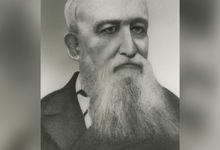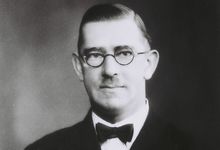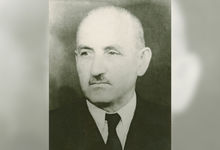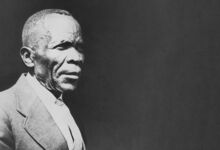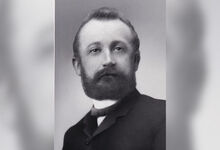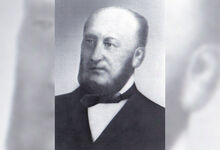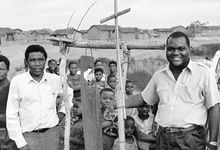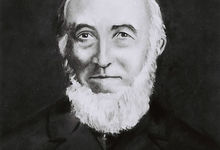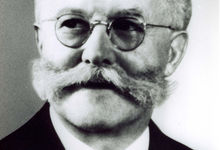The mysterious Apostle
One hundred years ago today, Apostle Sadrach is believed to have retired. This is not verified information though. What we do know is that the Europeans at the time were a little suspicious of the Javanese Apostle, and today we cannot say with certainty whether he held divine services until shortly before his death in 1924 or retired on 5 December 1922.
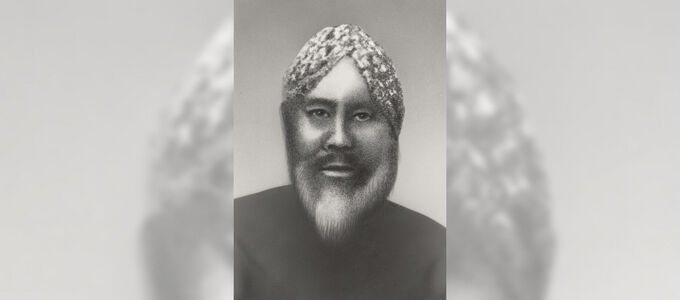
The first Javanese Apostle was a bit of a mystery at that time already because not much was known about the man. And because of varying sources this is still the case to this day.
When exactly he was born is not clear. Around 1840. Most sources agree on this. At that time, he still went by the name of Radin. Whether he was an orphan or his parents were simply too poor to provide for him is impossible to say in retrospect. In any case, he lived on the street and begged for his food until an Islamic teacher took care of him. He gave the boy food and made sure he got an education. Soon he started to teach and from then on was called Radin Abbas. A little later, his name changed again: he was baptised on 14 April 1867. And because it was customary at that time to be given a biblical name after baptism, he was called Sadrach from then on. When he received the Apostle ministry in 1899, the Javanese also began to call him Soeropranoto or Surapranata, which means “he who dares to make decrees”, which is more like a title than a name. To most people, however, he was simply Apostle Sadrach.
A passionate preacher
After his Islamic studies, he himself travelled throughout Java as a teacher to tell others about his Muslim faith. Until he met Frederik Lodewijk Anthing. He was a Protestant missionary and also liked to tell others about his faith. Anthing was able to win over the Javanese Radin Abas for Christianity, who allowed himself to be baptised.
Soon Anting had to return to Europe because he ran out of money. Eagerly Sadrach continued to spread the gospel in Java. Anthing, who had in the meantime become acquainted with the New Apostolic Church and had been sealed, returned to Java as an Apostle in 1881. Sadrach was there and with him 5,000 of his followers—or maybe 15,000. Here too the numbers in the various sources disagree.
License to preach
Anthing died only two years after he had returned to Java as an Apostle. Nevertheless, Sadrach and his followers remained faithful to the New Apostolic faith. In 1899 he received the ministry of Apostle.
Whether it had been 5,000 or 15,000 who had become New Apostolic together with Sadrach, it was a sizable number. And the other missionary societies were anything but charmed. There was gossip and slander. In the end, Apostle Sadrach was in prison. His followers were asked if they would renounce their Apostle now. The answer was clear: they would rather follow their Apostle Sadrach into death than abandon their faith. As a result, the Apostle was released and given a license to preach.
This opened up many opportunities for the Apostle. In order to inspire many people with his faith, the Apostle, rasul in Javanese, took long journeys upon himself. European missionaries described him in letters home as tireless, as he walked long distances in almost unbearable heat to reach even the most remote villages. Apostle Sadrach shocked the Europeans by telling them that they would have to take weapons with them when they made their way through the jungle to protect themselves from snakes and tigers.
Cultural conflicts
The Europeans were often suspicious of the Javanese Apostle. They accused him of practising the Christian faith in a Javanese way. However, to accuse him of holding traditional sacrificial meals was an exaggeration, because of course travellers who came from far away had to be fed and provided for. Later, they admitted that they had not taken the Javanese Apostle completely seriously and that this had been wrong.
Mysterious to his death
The sources are also not unanimous in how old the Apostle was when he died on 19 November 1924: he must have been between the ages of 84 and 102. Some sources say that he was no longer able to do his work because of his age, others report with due respect that he held the best divine services shortly before his death. Whether Apostle Sadrach retired two years before his death is not sufficiently documented.
Bishop Jotham was appointed as his successor. Whether this Apostle was Sadrach’s biological son, his son-in-law, or was not related to him at all is also not entirely clear.
Article info
Author:
Date:
Keywords:
Katrin Löwen
05.12.2022
Indonesia,
Apostle,
historic ministries,
People/Personalities


